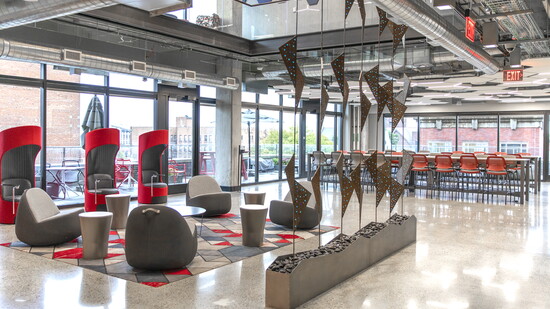Adam Mayhew, the executive dean at Baker College, didn’t follow the usual path to higher education. Instead of heading straight to college after high school, he joined the Army, gaining real-world experience and consequently earning 12 credits toward his undergraduate degree, which he completed in his 30s.
Mayhew, who is now working toward his PhD, understands what it’s like to be a non-traditional student and recognizes how turning relevant life experiences into college credit gives adult learners the momentum they need to earn a degree.
This concept, known as credits for prior learning (CPL), isn’t new. When Mayhew earned college credits for his military experience, the term “credit for prior learning” wasn’t used. But the concept — recognizing skills and knowledge acquired outside the classroom — allowed him to start college with a semester’s worth of credits.
Today, more and more schools are embracing CPL, using guidelines set by the American Council on Education and the Council for Adult and Experiential Learning. Notable among them is Baker College (baker.edu). Founded in 1922, Baker College is an independent, private, non-profit institution where students can earn associate, bachelor’s, master’s and doctoral degrees on campuses across Michigan and online.
“Why ask a 30-year-old to start college the same way an 18-year-old does,” says LaTasha Ellis, the undergraduate dean for the College of Business at Baker College. “They’ve already learned the things we would be teaching them if they came straight out of high school.”
CPL allows adult learners to earn college credits for military service, professional certifications and licensures, as well as work or volunteer experience, by evaluating whether those experiences reflect college-level learning. Ellis estimates that around half of Baker College students, where the median student age is 28, could qualify for CPL.
Under Baker’s program, students submit a portfolio documenting their skills and experience. The materials are reviewed for college-level equivalency. Credits can come from formal certifications, such as police academy training or real-estate licensure, to less formalized but relevant work experience.
Adult learners make up a significant percentage of the college student population. According to the National Center for Education Statistics, in the Fall of 2023, 6.2 million students aged 25 and older were enrolled in degree-granting postsecondary institutions.
Mayhew gives the example of a student in his 20s with experience managing a retail store. The assumption, he says, is that this individual has valuable experiences, such as hiring and firing employees and managing benefits packages. All of his experience could translate into a three-credit introductory course in human resources.
“If you’ve already met the learning objectives of an intro to human resources class, because you have five years of experience as a manager, taking that class may feel somewhat redundant,” Mayhew explains.
For adult learners like this store manager, starting from scratch to earn the 120 credit hours required for a bachelor’s degree can be overwhelming in terms of both time and cost. That’s why a large number of older students start and stop their postsecondary education, according to Ellis. However, if they’re able to earn credits, Ellis says, obtaining a degree becomes more manageable for adults, which in turn increases both retention and graduation rates.
When institutions make degree completion more accessible, she says, they unlock the potential of countless working professionals who might otherwise never finish their education.
